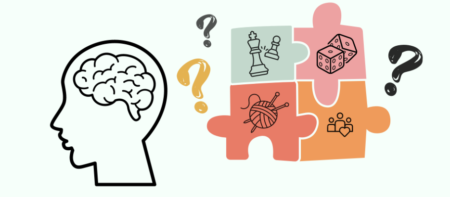Games, puzzles, social outings and dementia: what does research say?
YOU have probably heard that games, puzzles, and other activities are a good way to keep your brain active and slow down the effects of ageing. However, did you know that some activities may reduce the risk of developing dementia more than others?
The Research
Monash University’s School of Public Health and Preventative Medicine has released a study suggesting that some activities are more helpful than others when it comes to keeping the mind active. This recent research used information gathered over more than 10 years, taken from regular surveys of 10,318 older people.
This study found that regularly doing activities such as writing letters, taking classes, or using a computer was associated with an 11% lower risk of dementia.
Activities such as chess and word puzzles were associated with a 9% lower risk. These findings were the same between both men and women, as well as people with different education levels and income.
The study found that creative pastimes such as painting, drawing, and craft as well as more passive activities, such as reading or listening to the radio, were less helpful. However, these activities did still seem to make a difference.
Associate Professor Joanne Ryan, an author of the study, stated that “keeping the mind active and challenged may be particularly important.” She went on to say that “while engaging in literacy and mental acuity activities may not be a magic pill to avoid dementia, if that was your goal and you had to choose, our research certainly suggests these are the activities most likely to support prolonged good cognitive health”.
Interestingly, this study found that outings and socialising were not associated with lower risk of getting dementia, though many of the activities listed are certainly more enjoyable when others are involved.
It is also important to consider that other research has found that staying physically active and eating well is an important part of keeping your brain healthy.
Some Ideas for Activities
Some ideas for literacy-based games and puzzles might include crosswords, word searches, or anagrams. There are online options available too, such as The New York Times’ Wordle or free online scrabble game Words With Friends.
Other options might be Tetris, chess, sudoku, jigsaw puzzles, dice games such as Yahtzee, or card games such as solitaire or bridge. There are options for all interests, many of which are available to play for free online or through your mobile device.
If none of these options appeal, perhaps have a look at what classes might be available at your local community centre.
Early Signs of Dementia
Potential signs of the onset of dementia include:
- memory problems
- changes in personality or behaviour
- lessened ability to problem-solve or stay organised over six months.
Family members may be the first to notice changes. If that is the case, make an appointment to see a GP. Testing can allow for early diagnosis, which may mean that there are more treatment options available.
Where to Find More Information
If you or someone you care for has received a diagnosis of dementia and are looking for more information, Dementia Australia’s guide may be a useful resource.
Dementia Australia estimates that there are approximately 400,000 Australians living with dementia. Whilst there have recently been promising breakthroughs in developing effective treatments, prevention is the best strategy.
Early detection and treatment of any health condition is important. Please speak to your GP if you have queries or concerns.
Please find the Monash University study referenced in this article here: https://jamanetwork.com/journals/jamanetworkopen/fullarticle/2807256
